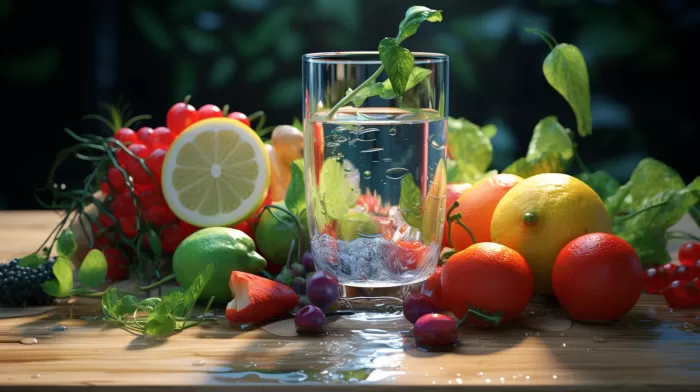Are you struggling to lose weight despite exercising regularly? Or maybe you’re looking for a way to shed those extra pounds without hitting the gym? Whatever the situation, there’s one simple trick that can boost your weight loss efforts and improve your overall health: staying hydrated. Simple, right? But many people overlook the importance of proper hydration, sometimes even confusing the signals our body sends when it’s thirsty. Let’s dive into the reasons why hydration is so important, how it influences your weight loss, and tips on boosting your daily hydration levels.
The Importance of Hydration and Weight Loss
According to a recent study published in Frontiers in Nutrition, proper hydration can impact diabetes, cancer, heart disease, and Alzheimer’s disease. But did you know that even mild chronic dehydration can lead to obesity? By simply drinking more water, not only can you improve your health, but you can also lose weight more efficiently. The study highlights two main reasons for this association:
1. Decreased feeding
It’s a fact: we often mistake dehydration for hunger. When experiencing low energy levels, we usually look for something to boost our energy – and that often means eating more than necessary. Drinking water regularly not only quenches your thirst, but it also helps you become more aware of your actual hunger signals, leading to less frequent eating.
In many weight loss programs, it’s recommended to drink a glass of water before a meal. This practice can substantially reduce caloric intake when followed consistently.
2. Increased lipolysis
Here’s the exciting part: your body can break down fat more efficiently when it’s properly hydrated. While water doesn’t directly increase fat burning, it removes the obstacle of inhibited fat burning caused by dehydration. Plus, better hydration can improve insulin sensitivity, which means that your body will store less fat.
Combined, all these factors can boost your metabolism, especially if it’s been slowed down by dehydration.
Overcoming Obstacles to Drinking More Water
One of the main reasons people don’t drink enough water is the lack of awareness about its benefits. However, even if you understand the importance of proper hydration, there might be other reasons keeping you from drinking more water:
1. Increased restroom use
While it’s true that drinking more water can lead to more frequent restroom visits, the solution is to ramp up your water intake gradually. Instead of jumping from two glasses a day to eight, increase your daily consumption by no more than a cup, and stick with that for a week. As your body adapts, this issue should diminish over time.
2. Dislike for water’s taste
Some people find water bland or tasteless, but there are plenty of ways to make it more appealing and boost hydration. Here are some tips:
- Drink a glass of water first thing in the morning.
- Sip on water before each meal. This can help reduce hunger and allow for better digestion.
- Start your meals with clear broth-based soups. They can be bone broth alone or veggie soups made with broth or water.
- Add more “watery” foods, such as fruits and vegetables, to your diet. Try adding ice to your smoothies.
- Mark a water bottle and keep it with you as a visual reminder of your hydration goals. Instead of marking in ounces, mark the bottle with specific times of day.
- Flavor your water with frozen berries, a squeeze of citrus fruit, or a few drops of stevia to make it more appealing.
How Much Water Should You Drink?
The recommendation to drink six to eight glasses of water per day for adults may sound familiar, but it’s not based on solid proof. Instead, doctors suggest drinking enough fluid so that it’s in excess of your thirst – meaning you should drink more than you think you need to and avoid feeling thirsty in the first place.
It’s important to balance your water intake with your consumption of dehydrating foods and drinks, such as sugar, alcohol, and caffeine, to maintain optimal hydration levels.
In conclusion, staying hydrated can significantly impact your weight loss journey and overall health. So, try incorporating these tips into your daily routine and don’t underestimate the power of water!



